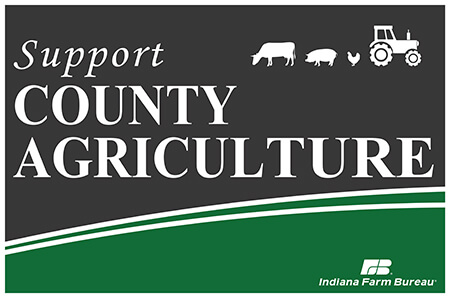Stay Informed
Prepare for opposition before building or expanding your animal operation
Livestock farms in Indiana and around the country are expanding to meet a strong worldwide demand for animal protein. With many crop farmers operating on tight margins, livestock farms are benefitting from affordable feed prices, and many grain farmers are expanding their operations to include livestock as a means of generating steady income.
For many, expansion also offers a way to incorporate a son or daughter into the business and bring family back to the farm. Beyond the benefits this brings to individual farmers, many communities are benefitting financially from livestock expansions as more income tax to the county benefits the entire community.
 If you are thinking of building or expanding your livestock or poultry operation, be prepared for pushback. It’s a common misconception that being connected, respected and established in your community protects you from resistance from organized opposition. It’s imperative that all livestock and poultry farmers be informed and prepared before local or statewide opposition speaks up.
If you are thinking of building or expanding your livestock or poultry operation, be prepared for pushback. It’s a common misconception that being connected, respected and established in your community protects you from resistance from organized opposition. It’s imperative that all livestock and poultry farmers be informed and prepared before local or statewide opposition speaks up.
If you’re planning to grow your animal operation, here are a few things you can expect from the opposition:
- Expect anti-livestock campaigns to use emotion over facts. Be prepared for miss-information in the marketing materials activists will use to sway constituents.
- Don’t assume that your operation is too small to garner attention from activists. If a group is active in your area, it may focus on small operations or small changes to your existing farm.
- Pay attention to the letters-to-the-editor section of your local paper. This is often the first tactic organized groups use to share their messages.
Indiana Farm Bureau livestock development specialist Greg Slipher recommended that you keep your eyes and ears open if you’re planning a project.
Consume local media and attend meetings such as the county commissioner and planning commission meetings,” Slipher said. “It’s important to know what your community and the decision makers in your community think about livestock and poultry farms.”
Indiana Farm Bureau encourages you to reach out to county Farm Bureau leadership or the state public policy team for assistance in preparing for opposition. INFB works closely with other commodity organizations to help you minimize community pushback and help you share the truth about your business with your community and local leaders.
“When considering an expansion, the most important thing is to be transparent, honest and own your message from the start,” said Slipher. “Don’t mistake questions and concerns from neighbors and local decision-makers as anti-livestock opposition. Questions about the risk factors of your proposed location and concerns over how the facility will operate are perfectly appropriate. It’s how you handle these types of discussions that will play a role in dictating how opposition will develop going forward.”
Here are some of things that should be on your to-do list if you’re considering an expansion:
- Reach out to Indiana Farm Bureau or your livestock commodity group for help.
- Navigate the permitting and zoning process.
- Communicate the plan with neighbors.
- Make connections with livestock environmental consultants and agriculture organizations.
- Work with media to tell your story.
- Interact with the appropriate state and local officials.
“We’ve seen the passion that many groups that disagree with our industry have,” said Slipher. “We must be committed with the same passion as the opposition, because we have an important story to tell and we are an important part of the community.”




